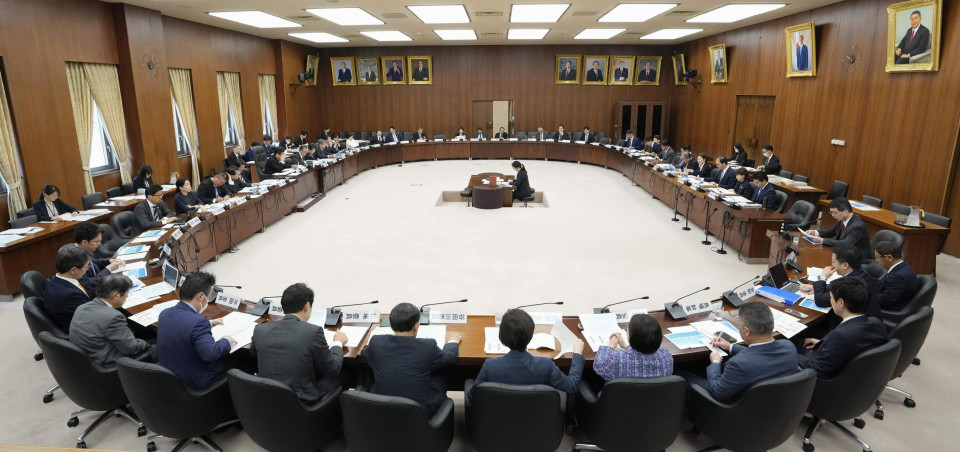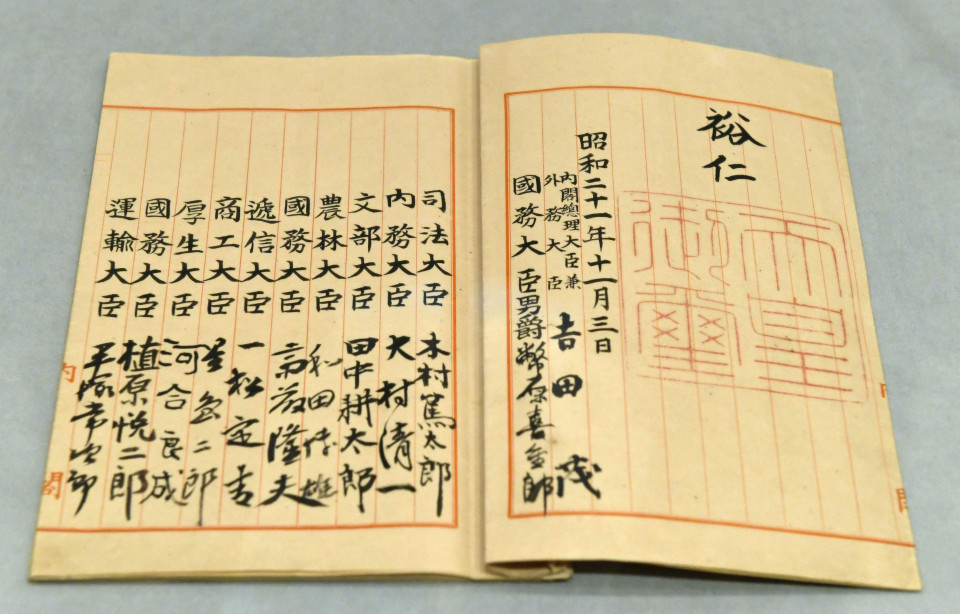Some 58 percent of Japanese believe the spread of unverified information on social media platforms during elections should be regulated by law, according to a Kyodo News survey focusing on various constitutional matters.
The result comes as criticism mounts over partisan online posts that are believed to have contributed to Motohiko Saito’s reelection as Hyogo governor in November by dismissing accusations of abuse of power made by his staff. The Constitution guarantees the freedom of expression.
Some 29 percent said social media operators should be responsible for regulating their platforms in such a situation, according to the survey compiled Thursday.

File photo shows a session of the House of Representatives’ Commission on the Constitution on April 24, 2025. (Kyodo) ==Kyodo
In April, Japan enacted the information distribution platform law aimed at facilitating the swift removal of defamatory content on social media platforms. However, it has not yet made a significant difference, causing consternation among the ruling and opposition parties ahead of the upper house election.
Support in the survey for a revision to the Constitution’s Article 9, which renounces war and bans Japan from possessing “war potential” such as military forces, was split, with 48 percent supporting a change and the same proportion opposing it.
The postwar Constitution, drafted under the U.S.-led Allied occupation of Japan after World War II, has never been revised since it took effect in 1947.
More generally, a total of 63 percent of respondents said momentum toward making any amendment to the Constitution is not building. Any parliamentary party requires two-thirds of lawmakers to vote in favor of a proposed constitutional amendment to advance it to a public vote.
Regarding how to proceed with making any constitutional revision, 72 percent said political parties, including those cautious about amendments, should focus on reaching a consensus, greatly exceeding the 24 percent who believe drafted articles should be written by the parties favoring it.
When respondents were asked to select three topics related to the Constitution they felt should be discussed in parliament, “the right to a minimum level of living standards, including access to social security” was the most common choice at 35 percent, followed by “Article 9 and the Self-Defense Forces” and “emergencies such as major disasters” at 31 percent each.

File photo taken in April 2017 at the National Archives of Japan in Tokyo shows the original document of the Constitution of Japan. (Kyodo) ==Kyodo
Among other contentious issues, 71 percent said married couples should be given the choice to keep their surnames separate, while 27 percent opposed it.
Japan’s Civil Code requires married couples to share the same surname. In the overwhelming majority of cases, the wife adopts the husband’s.
The survey also showed 64 percent of respondents agreeing that same-sex marriage should be recognized, compared with 34 percent who oppose it.
Japan is the only member of the Group of Seven industrialized nations not to recognize same-sex marriage or to provide a national-level partnership system.
The survey was conducted ahead of the Constitution Memorial Day national holiday on Saturday via mail from March to April. It targeted 3,000 men and women in Japan aged 18 and over, of whom 62.2 percent provided valid responses.
Related coverage:
Diet panel OKs regulating election posters after chaos in Tokyo race
Japan enacts law to set new rules against election poster opportunism
FOCUS: Social media changing Japan election landscape with risks

AloJapan.com